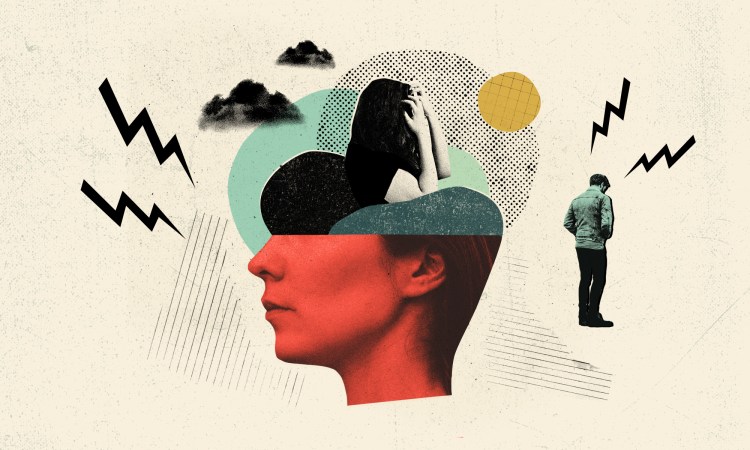
Since I started writing the “Dear Guy” column, I’ve received many letters from readers asking why some people in their lives just seem unable to apologize — even when they’re clearly in the wrong.
Are they just stubborn? Or is there something in their psychology that stops them from being able to take responsibility for their actions and simply say they’re sorry?
To be clear, even the most conscientious among us occasionally fails to apologize. When this happens, it’s usually for one of two reasons: (1) We don’t care enough about the other person or the relationship to take on the emotional discomfort of owning our mistake and apologizing for it; or (2) We believe our apology won’t matter.
For example, let’s say you snapped at a colleague who interrupted you while you were racing to meet a tight deadline. If you think the coworker already holds a grudge against you for an earlier incident, you may skip apologizing since you feel it really won’t help your relationship with them.
People who can’t apologize appear to be tough individuals who refuse to back down. But they don’t do this because they’re strong — it’s because they’re weak.
But what about the people who can never admit they’ve misstepped, no matter the circumstance? What makes them incapable of apologizing even when they’re obviously in the wrong? For these people, admitting wrongdoing and offering an apology is too psychologically threatening. Offering an apology implies that they’ve harmed another person in some way, which can elicit feelings of shame.
People who cannot apologize often have such deep feelings of low self-worth that their fragile egos cannot absorb the blow of admitting they were wrong. So their defense mechanisms kick in — at times, unconsciously — and they may externalize any blame and even dispute basic facts to ward off the threat of having to lower themselves by offering an apology. When they double down on their wrongness by blaming circumstances, denying the facts, or attacking the other person or people involved, non-apologizers can make themselves feel empowered rather than diminished.
Unfortunately, many of us mistakenly interpret these people’s fragility-driven defensiveness as a sign of psychological strength. That’s because outwardly they appear to be tough individuals who refuse to back down. But they don’t do this because they’re strong — it’s because they’re weak.
Psychologically speaking, admitting that we’re wrong is emotionally uncomfortable and painful to our sense of self. In order to take responsibility and apologize, our self-esteem needs to be strong enough for us to absorb that discomfort. Indeed, if our self-esteem is higher and stable, we can tolerate the temporary ding that such an admission involves — without the walls around our ego crumbling.
But if our self-esteem is seemingly high but actually fragile, that ding can pierce through our defensive walls and score a direct hit to our ego. Indeed, as a rule of psychological thumb, the more rigid one’s defense mechanisms are, the more fragile the ego they’re protecting.
The mistake we often make when faced with someone incapable of apologizing is to become irate and try to win our argument with them. But the sad reality is: We’ll never win.
The mistake we often make when faced with someone who’s habitually incapable of apologizing is to become irate (for good reason, of course) and try to win our argument with them (because we’re right!). But the sad and frustrating reality is we can never win. Even if we demonstrated that they were wrong in stark, inarguable facts, they will either deny those inarguable facts or pivot to a personal attack by saying something like “Why do you always make things difficult and unpleasant?!?”.
In these situations, the best we can do is to make our points as calmly and as convincingly as we can and then disengage from the argument when it becomes unproductive — like when they dispute the facts, come up with ridiculous excuses or pivot to petty remarks. Once they calm down and once they no longer feel attacked, we can then look for signs of contrition. Are they extra kind or solicitous to us? This is their way of unconsciously trying to mend the relationship with us in ways that aren’t threatening to their sense of self. By going that extra mile in the aftermath of their misdoing, they can feel good about themselves rather than bad.
If the non-apologizer is a close connection, tap into your empathy and compassion. Remind yourself that beneath their stubborn exterior, they are incredibly vulnerable.
OK, so what can you do about the non-apologizers in your own life? Especially if they’re your family members, coworkers or friends? Well, if they are not people you interact with regularly, you can consider minimizing contact with them. But if they are close connections, you can try to make your peace with them.
The best way to do this is to accept their behavior — annoying as it is — and realize they’re simply psychologically incapable of apologizing. What’s more, they’re not going to change. Practicing acceptance can help you disengage from arguments with them and help you limit your feelings of frustration, anger and hurt.
Then, if the non-apologizer is a close connection of yours, you can also tap into your empathy and compassion. Remind yourself that beneath their stubborn-as-a-bull exterior, they are incredibly vulnerable.
The bottom line is this: We all have moments when we refuse to admit we’re wrong. But when someone never takes responsibility and is habitually incapable of apologizing, it’s a sign that they’re a person with a fragile ego and a weak sense of self.
Got an interpersonal problem that you can’t figure out on your own? Psychologist Guy Winch answers readers’ questions about life, love, work and what matters most. Please send them to dearguy@ted.com; for his previous columns, go here.
Watch his talk on emotional first aid now:

















